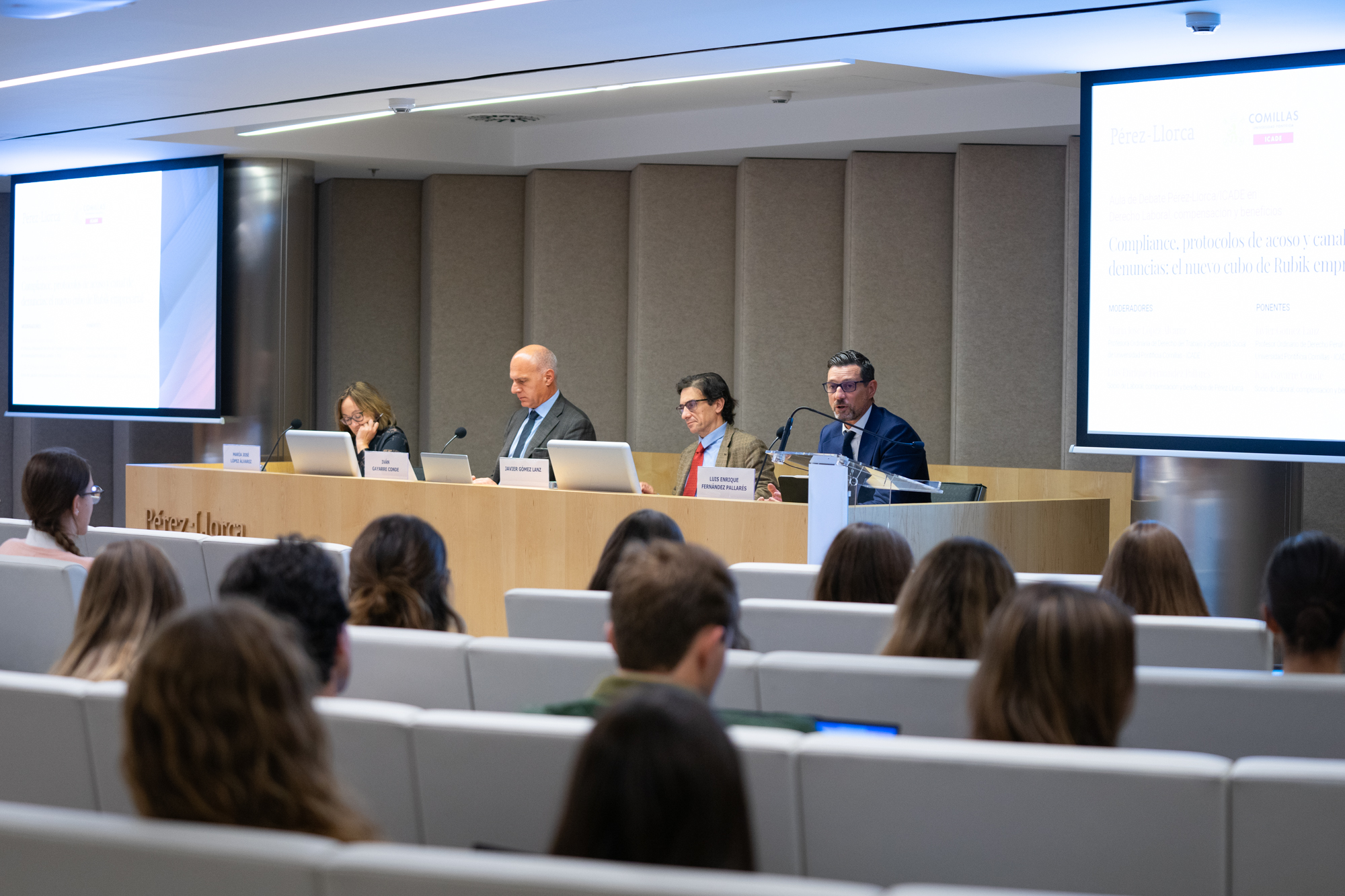This event featured analysis, from an employment and criminal law perspective, of whistleblowing channels, harassment protocols and compliance systems required by law for companies. Speakers at the session were Javier Gómez Lanz, Professor of Criminal Law at the Universidad Pontificia Comillas (Comillas ICADE)’s Faculty of Law and Iván Gayarre Conde, Employment, Compensation and Benefits partner at Pérez-Llorca. María José López Álvarez, Professor of Employment Law and Social Security at the Universidad Pontificia Comillas (Comillas ICADE)’s Faculty of Law, and Luis Enrique Fernández Pallarés, Employment, Compensation and Benefits partner at Pérez-Llorca, moderated the session.
From an employment law perspective, Iván Gayarre pointed out that the whistleblowing channel, the harassment protocol and regulatory compliance are three distinct bodies, each with their own procedures and deadlines. In addition, he clarified that while it is not mandatory for companies to have a workplace harassment protocol, this does not mean that such cases are not subject to investigation. “Despite the absence of a specific standard, companies have the necessary principles to carry out investigations through Article 190 of the International Labour Organization (ILO) and the 2007 European framework agreement,” Gayarre said.
The Pérez-Llorca partner explained that, according to Article 35.2 of Law 2/2023 of 20 February on whistleblower protection, no protection is granted under this law to those who report interpersonal conflicts, something that usually entails complications for the internal procedure, so he advocated outsourcing the investigation to an expert professional for the case.
Javier Gómez Lanz went on to point out that in some cases of harassment in the workplace, Article 173 of the Criminal Code would permit the professional’s conduct to be considered a crime and the legal entity to be held criminally liable. However, the Criminal Code does not currently establish an express obligation for companies to handle complaints, investigate or sanction such unlawful conduct by their employees. Despite the absence of a specific obligation, Gómez Lanz emphasised that it is standard for companies to get involved “not only out of an ethical and reputational commitment, but also to prevent possible future liability.”
Afterwards, Luis Enrique Fernández Pallarés and Iván Gayarre explained the legal aspects of the process. The experts stressed the importance of setting clear limits on both deadlines and the submission of evidence. The protocol should set out a defined period of time for the investigation to resolved, and in such cases it is essential that external investigators exercise judgement and sensitivity in handling complex situations.
In terms of criminal law, Gómez Lanz explained that the legal and natural persons who are obliged to oversee and follow up on the measures established in the compliance programme are at severe risk of being held criminally liable for any failure to monitor ongoing criminal conduct that could be prolonged by their failure to intervene. According to Gómez Lanz, delimiting this responsibility is complicated, given that internal investigations lack specific regulation and their limits are set by the rights and freedoms of the worker. In short, there is no obligation and collaboration is voluntary.
